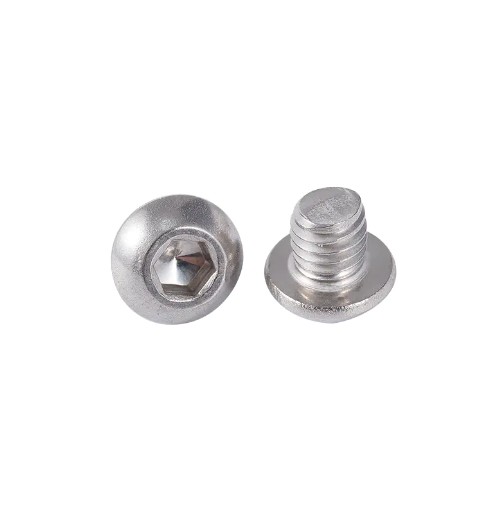RT2 Series Bogie Type Resistance Furnace
Cat:Industrial Furnace
RT2 series trolley resistance furnace can be used for heat treatment processes s...
See DetailsNew materials drive machine screw performance upgrade
In traditional machine screw manufacturing, carbon steel and stainless steel are the most commonly used materials. However, the performance of these materials in certain harsh environments is often limited, such as insufficient corrosion resistance, insufficient strength or excessive cost. In order to meet these challenges, the industry has begun to actively introduce new alloy materials and composite materials.
High-performance alloy materials
The applications of some high-performance alloys such as titanium alloys and chromium-molybdenum alloys have significantly improved the strength and corrosion resistance of Machine Screws. These materials are especially suitable for high-demand scenarios such as aerospace and marine engineering.
Introduction of composite materials
With the maturity of composite material manufacturing technology, some industries with lightweight demand have begun to use machine screws made of carbon fiber reinforced plastics (CFRP) or ceramic-based composite materials. These materials not only reduce weight, but also have excellent high temperature and fatigue resistance.
The application of new materials has allowed Machine Screws to perform outstandingly in more complex scenarios, and has also replaced traditional riveting and welding processes in some areas.
Comprehensive upgrade of manufacturing process
Advances in manufacturing processes have also brought significant changes to the Machine Screws industry, especially in terms of accuracy, efficiency and environmental protection.
CNC technology and intelligent manufacturing
The widespread use of CNC machine tools has brought the manufacturing accuracy of machine screws to a new level, while greatly improving production efficiency. In addition, the application of intelligent manufacturing technology greatly enhances the flexibility of mass production, and customized needs can be met more quickly.
Optimization of cold forging and heat treatment
Cold forging technology is manufactured through precision molds, which improves the strength and surface quality of screw threads. The improvement of the heat treatment process further enhances the toughness and wear resistance of the screw, which significantly extends its life under dynamic load environment.
New technology for surface treatment
Advances in surface treatment technologies such as anti-corrosion coatings, electroplating and nanocoating provide guarantees for the application of Machine Screws in harsh environments. For example, nanocoating can not only significantly improve surface hardness, but also reduce friction coefficient and reduce energy loss.

Industry impacts brought by technological innovation
The combination of new materials and manufacturing processes not only promotes performance breakthroughs in Machine Screws, but also has a profound impact on related industries:
A wider range of applications
High-performance machine screws have begun to be used in areas such as medical equipment, electronic products, and automobile manufacturing that require extremely high precision and reliability. In these scenarios, the performance requirements for screws are not met by traditional products.
The balance between cost and benefit
Although the new technology has increased the manufacturing cost of machine screws, its durability and reliability have also been significantly improved, indirectly reducing maintenance costs and improving overall economic benefits.
Environmental protection and sustainable development
With the deepening of the concept of green manufacturing, the industry has gradually adopted environmentally friendly materials and low-energy-consuming processes. For example, manufacturing Machine Screws from recyclable materials not only reduces resource waste, but also conforms to global sustainable development trends.
Future Outlook
The technological innovation in the machine screw industry is still deepening. In the future, with the development of nanomaterials and additive manufacturing (3D printing) technologies, the performance of Machine Screws is expected to be further improved. At the same time, an intelligent and networked manufacturing system will make customized production more efficient and push the industry to a new height.